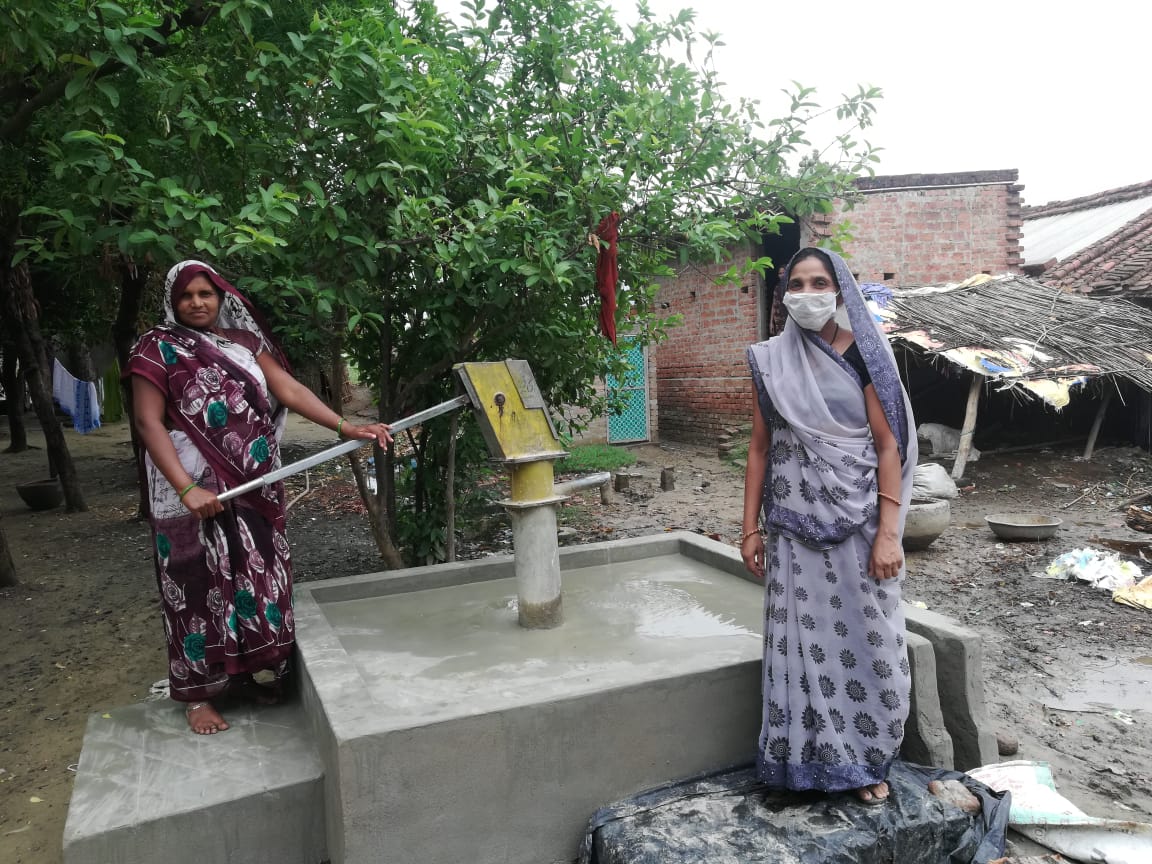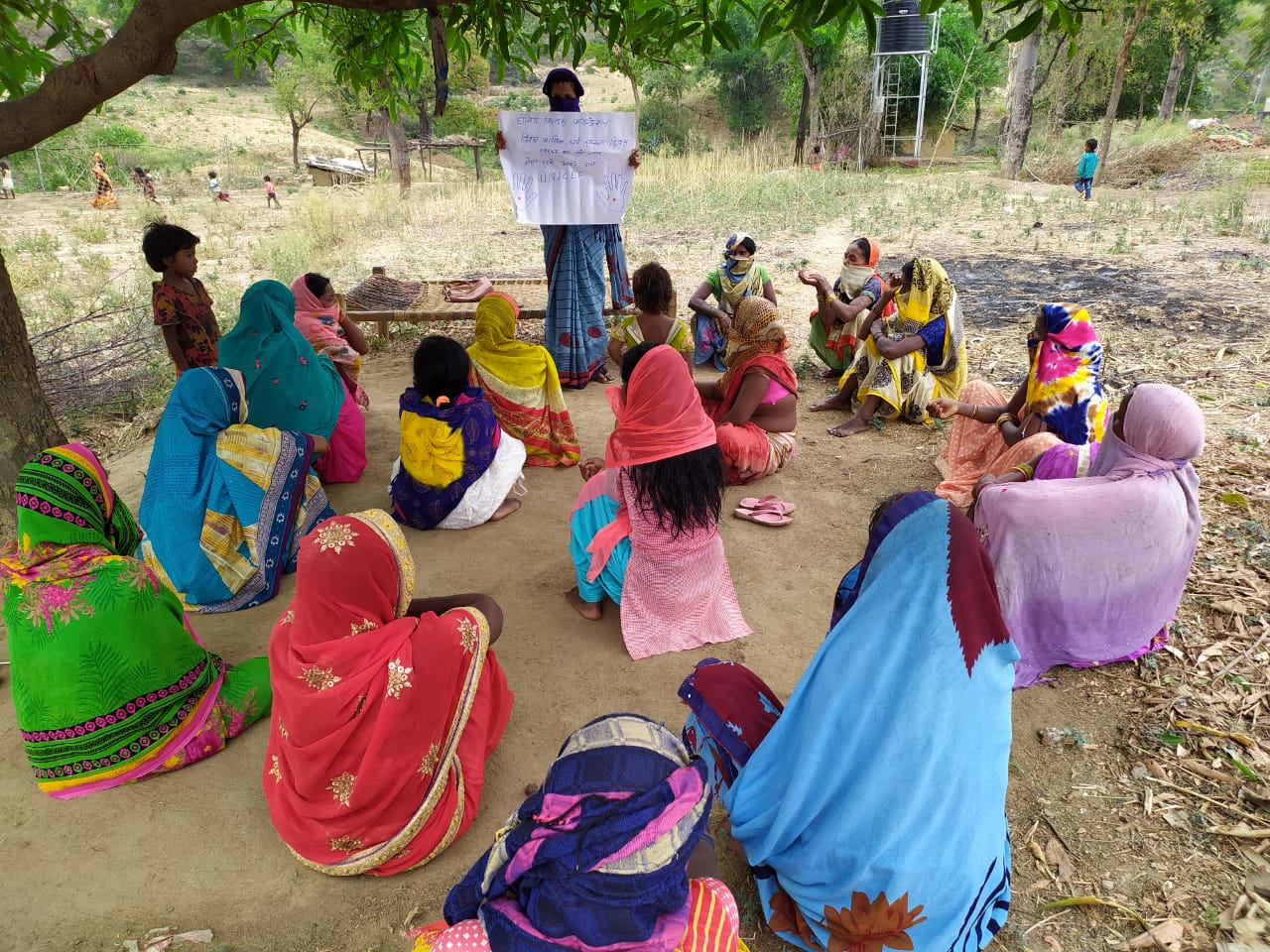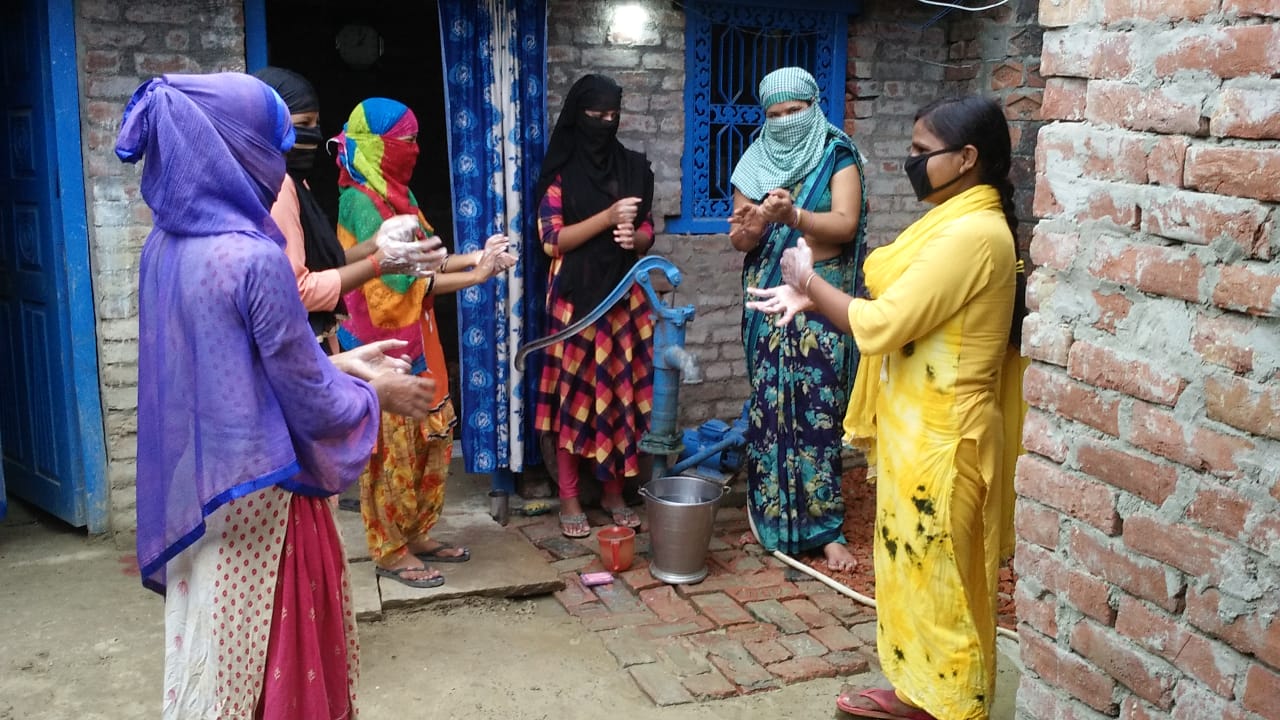Fighting COVID-19 one year on
It is the anniversary nobody wants to celebrate: one year since the first recorded cases of COVID-19. Lockdowns across the globe have shut down cities, but only increased the need for accessible and effective healthcare. One year on, and India remains one of the hardest hit countries, with daily infection rates higher than the total number of cases in Australia.

A fresh water supply is essential for handwashing in rural villages. Photo credit: Healing Fields Foundation
“The obvious challenges that have been well documented and acknowledged are increased poverty and hunger,” said Gayathri Prashanth, General Manager of Healing Fields Foundation, Opportunity’s health program partner in India. “A lack of access to already scanty healthcare had direct impacts on our work both in the short term and long term, as we had to pivot to providing access to basic services like food. Access to healthcare was always a challenge, now, that has become much larger.”
With monsoonal rains and travel restrictions challenging access to villages, health leaders are leading the way where staff are unable to. “Trained [leaders] can continue to act as conduits for information and care,” Ms Prashanth said. “We are working to build local self-sustainability by helping communities to take responsibility for their health… as well as educate on COVID best practices and form committees for local COVID response leadership.”
As government-imposed lockdowns caused cities to shut their doors and send workers away, a mass movement of stood-down workers began making their way home to villages, presenting a significant risk of outbreaks. What first began as ‘dignity journeys’ quickly shifted to assisting the establishment of safe quarantine locations. “We had to start thinking and doing things on our feet,” Ms Prashanth said. “We recouped and built ourselves to deliver information, knowledge and health education through channels we didn’t think were available or usable earlier.”
Health leaders—officially known as Community Health Facilitators (CHFs)— continue to lead the way in villages where health providers can no longer reach. “We were not able to continue with our regular programs, and staff were also not able to travel due to the restrictions… instead of expanding existing programs, we’ve had to engage existing CHF’s in new, dynamic, ways to approach the current scenario,” Gayathri said.
“We immediately engaged with our CHF’s and pivoted our COVID response with them. Once again, the women rose to the challenge and worked closely with our team to protect the vulnerable, support the poor during lockdown, and helping people access healthcare and government entitlements. This situation became an opportunity to understand the power and resilience of community health leaders.”
“Sale of livelihood products was affected during the lockdown due to lack of income and affordability. However, the need for the products continues especially hand wash and hand sanitizers. The COVID situation has only intensified the challenges related to access to healthcare.

Health leaders are not only providing hygiene workshops, but working to provide basic care needs including sanitary items, masks, and food.
Challenge breeds innovation, and during lockdown, Gayathri and her team saw the urgent need to find solutions to travel limitations. “[Restrictions] got us thinking that we need to come up with a long-term sustainable solution to address the lack of access to primary care and consultation. It made us start thinking of a handheld mobile device in the hands of the trained CHF’s in the village can create access to qualified health providers remotely. I think if made simpler, this could potentially be a game changer in impoverished communities all across the world.”
While handheld care assistance is still in the works, technology continues to play a vital role in supporting health leaders in remote areas. Using apps like WhatsApp and Zoom to stay in touch, and provide specialised assistance, technology is helping provide COVID-specific training in what Gayathri calls ‘the three P’s;’ “we are working towards COVID preparedness in villages along with our health leaders using the 3 P model; to prevent, protect, and prepare. The current focus is preparing villages through COVID management committees and applying the 3 P strategy.”
More than 350 villages have formed COVID-safe committees, along with providing masks and food assistance to meet immediate needs. Gayathri noted that “the organisation has been able to greatly expand its impact in rural villages” due to the pandemic, with hopes to include an online education program for children of health leaders unable to attend school during lockdown.
Hopes for a vaccine are no panacea for rural and remote communities, unable to store some vaccines at temperatures so low that they require an industrial freezer. For now, health leaders continue to train and collaborate virtually with the Healing Fields Foundation team so they can continue to provide COVID-safe care in an incredibly uncertain time.

Proper handwashing techniques are essential in preventing COVID-19.
The challenges are palpably real, but Gayathri remains hopeful that the new year will bring change for the good. “We are hoping that schools can begin in the next academic year, so we can focus on our school health programs. We are also hoping to see the communities we work in build resilience, not just to fight this pandemic, but to overcome similar challenging situations,” she said.
Leading the way with their community led COVID response, Gayathri and the team is ready to take the next step. “We hope it gets us recognition with the government, so we can partner with them to scale this model further.”
“We are hoping for the return of normalcy in the new year,” Gayathri said.
Learn more about our health programs here and donate to our COVID-19 Christmas Appeal.